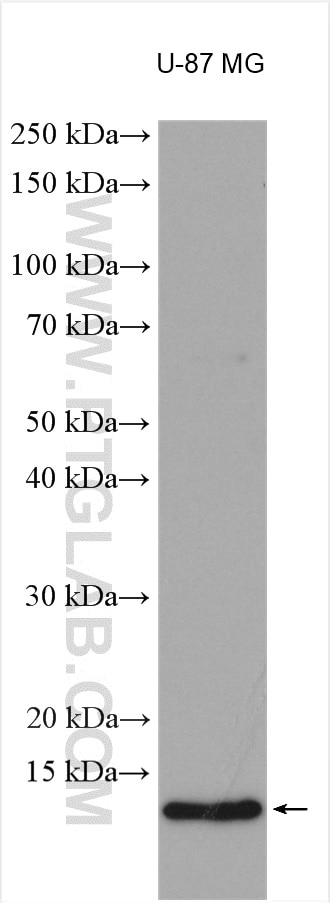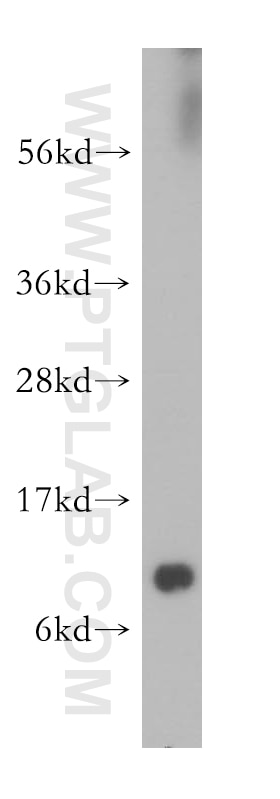DBI Polyklonaler Antikörper
DBI Polyklonal Antikörper für WB, ELISA
Wirt / Isotyp
Kaninchen / IgG
Getestete Reaktivität
human, Maus, Ratte
Anwendung
WB, ELISA
Konjugation
Unkonjugiert
Kat-Nr. : 14490-1-AP
Synonyme
Geprüfte Anwendungen
| Erfolgreiche Detektion in WB | U-87 MG-Zellen, humanes Lebergewebe |
Empfohlene Verdünnung
| Anwendung | Verdünnung |
|---|---|
| Western Blot (WB) | WB : 1:300-1:600 |
| It is recommended that this reagent should be titrated in each testing system to obtain optimal results. | |
| Sample-dependent, check data in validation data gallery | |
Veröffentlichte Anwendungen
| WB | See 2 publications below |
Produktinformation
14490-1-AP bindet in WB, ELISA DBI und zeigt Reaktivität mit human, Maus, Ratten
| Getestete Reaktivität | human, Maus, Ratte |
| In Publikationen genannte Reaktivität | human, Maus |
| Wirt / Isotyp | Kaninchen / IgG |
| Klonalität | Polyklonal |
| Typ | Antikörper |
| Immunogen | DBI fusion protein Ag5891 |
| Vollständiger Name | diazepam binding inhibitor (GABA receptor modulator, acyl-Coenzyme A binding protein) |
| Berechnetes Molekulargewicht | 10 kDa |
| Beobachtetes Molekulargewicht | 10 kDa |
| GenBank-Zugangsnummer | BC062996 |
| Gene symbol | ACBP/DBI |
| Gene ID (NCBI) | 1622 |
| Konjugation | Unkonjugiert |
| Form | Liquid |
| Reinigungsmethode | Antigen-Affinitätsreinigung |
| Lagerungspuffer | PBS with 0.02% sodium azide and 50% glycerol |
| Lagerungsbedingungen | Bei -20°C lagern. Nach dem Versand ein Jahr lang stabil Aliquotieren ist bei -20oC Lagerung nicht notwendig. 20ul Größen enthalten 0,1% BSA. |
Protokolle
| PRODUKTSPEZIFISCHE PROTOKOLLE | |
|---|---|
| WB protocol for DBI antibody 14490-1-AP | Protokoll herunterladen |
| STANDARD-PROTOKOLLE | |
|---|---|
| Klicken Sie hier, um unsere Standardprotokolle anzuzeigen |
Publikationen
| Species | Application | Title |
|---|---|---|
Sci Rep Thioesterase induction by 2,3,7,8-tetrachlorodibenzo-p-dioxin results in a futile cycle that inhibits hepatic β-oxidation. | ||
Eur Neuropsychopharmacol Deficiency of prolyl oligopeptidase in mice disturbs synaptic plasticity and reduces anxiety-like behaviour, body weight, and brain volume. | ||
Hum Reprod Palmitic acid impairs human and mouse placental function by inhibiting trophoblast autophagy through induction of acyl-coenzyme A-binding protein (ACBP) upregulation |



